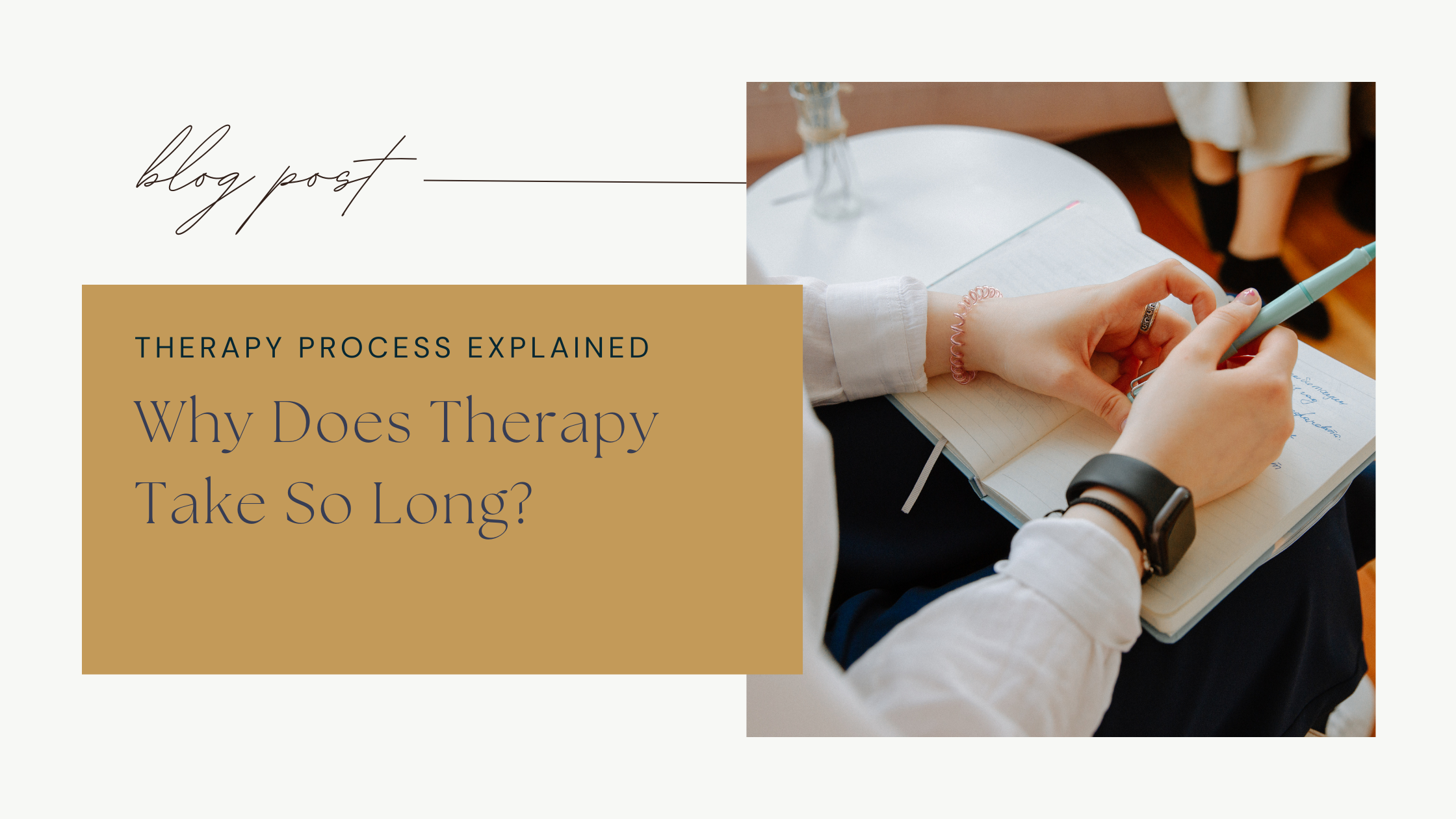Why does therapy take so long?
I wish therapy could be as simple as 2-5 sessions and… BAM! You’re cured! That would be so appealing and simple. It might even make problems feel smaller and more manageable. Unfortunately, real life is not so simple. Therapy is a process that tries to follow a timeline, but when we add the human element, it changes based on each individual. So let’s break it down.
Rapport-Building Stage
This is the beginning of therapy and probably my least favorite part. It starts with therapists going over a million and one questions in an attempt to get your entire life story in a measly hour or two. I always give the heads up that we will probably not get to everything and it is A-OK to forget a major life event when we got through everything the first time. It happens! We go through so much information while trying to build trust simultaneously. That’s a lot for anyone! It gets even more complicated when you add in trauma, disorders, addictions, dysfunctional families… the list goes on.
Then we get into the reality of therapy – change. Therapy is meant for those who are looking for a change, whether that be in coping skills, acceptance, or something else This is why many people choose to stop scheduling or showing up after the first session. As much as I wish there were a formula or definitive factor to anticipate this, there isn’t. It is entirely possible that you feel ready, have your first session, and then back out for dozens of reasons. Good, bad, or otherwise, research confirms this reality time and time again. At the end of the day, you have the option to assess the fit and your needs for therapy and do what you feel is best. No blame or shame in the game of figuring out your needs!
Con: I’m a stranger (i.e., someone new and unfamiliar) with whom you are now sharing your “bad/scary/embarrassing/etc.” side regularly. That sh*t is scary no matter how tough you are!
Pro: I have zero connections to your life outside of our sessions, so I can provide a different perspective without judgment.
Working Stage
This is my favorite part! We get into the nitty-gritty. By that I mean we get emotional and real. That can look any number of ways, but I love it when we get to address the core issues. We get to observe, address, and empathize with whatever arises. This is when you learn coping skills, therapists provide psychoeducation, and you get to practice new things in a safe place. You get to make mistakes without the pressure of massively altering your foundation. All the while, you get to have someone cheering you on because we believe in you! What’s not to love about that kind of freedom?
Con: Trying new things can be scary. You may make mistakes and be imperfect as you learn.
Pro: You have an empathetic cheerleader in your corner! My favorite thing is to help walk you through every step, provide feedback, and keep encouraging you to do your best!
Re-Assess & Re-Group Stage
There sometimes comes a point when we accomplish our original therapy goals and need to assess what to do next. For some, this is termination (below). For others, this involves looking at daily experiences and stressors. If the latter is the case for you, we might do a combination of less frequent sessions and processing things that might have been “too much” to handle at the start of therapy. (You would be surprised at how common it is for clients to want to start with the “easy” stressors before getting into the difficult parts of life. All the more reason why the rapport-building stage is so important!)
Con: More therapy and facing difficult thoughts/feelings/emotions/behaviors.
Pro: More skills and support to face difficult thoughts/feelings/emotions/behaviors.
Termination Stage
This is where we end things. You are a beautiful baby bird who is ready to fly out on their own. We have spaced out our sessions to the point where even monthly check-ins feel unnecessary. You know how to work through stressful situations and utilize coping skills. You have grown! It’s usually a bittersweet experience for you and your therapist, but we know it is for the best. The door to return is always open, but a part of us hopes you never have to use it. Maybe I’m odd for a therapist, but I always hold a bit of hope that each client lives a happy, fulfilling life utilizing the tools we practiced to the point where you don’t need me again.
Therapy is a process. For some, it can be straightforward and somewhat linear. For most, it is one step in the process of learning to cope with life’s stressors. No matter which group you find yourself in at this point in your life, I am here for you. I will be your cheerleader, coach, info-enthusiast, and reality-check (if you let me)! You will always have the ultimate decision on how you live your life.

